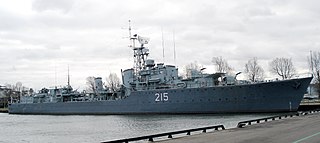Two ships of the Royal Navy have been named HMS Ashanti after the Ashanti people.
- HMS Ashanti (F51) was a Tribal-class destroyer launched in 1937 and sold for breaking up in 1949.
- HMS Ashanti (F117) was a Tribal-class frigate launched in 1959. She was expended as a target in 1988.



